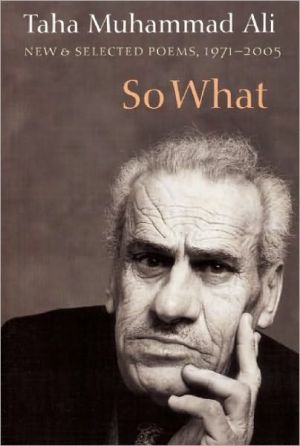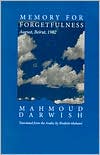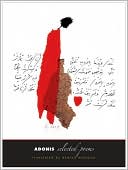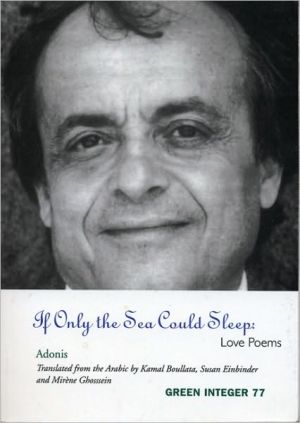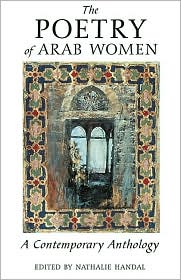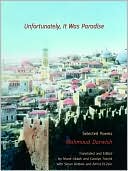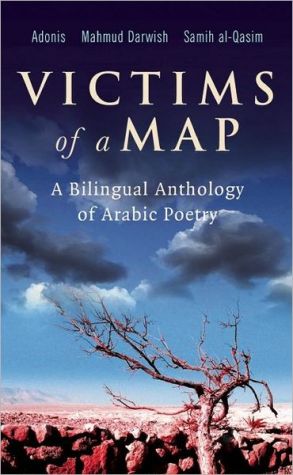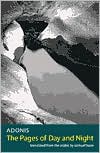So What: New and Selected Poems 1973-2005
“Taha Muhammad Ali speaks with an emotional forthrightness. . . . He has developed a style that seems both ancient and new, deceptively simple and movingly direct.”—The Washington Post\ Taha Muhammad Ali is a revered Palestinian poet whose work is driven by vivid imagination, disarming humor, and unflinching honesty. As a boy he was exiled from his hometown, but rather than turning to a protest poetry of black-and-white slogans to convey this loss, he has created art of the highest order. His...
Search in google:
The first American publication of a major Palestinian poet, whose international festival readings attract vast audiences.Publishers WeeklyDespite his spare output and lack of formal education, Ali has become one of the most widely admired Palestinian poets. Composed in a synthetic Arabic that draws both on classical language and colloquial speech, Ali's vivid free verse conveys the moody resilience of his personality in treatments of the national grief of occupation, exile and the Palestinian Arabs' "endless migration." Often informed by symbols and structures from Arab tradition, Ali's ironies stand alongside easily grasped, even universal, versions of lament: "We did not know/ at the moment of parting/ that it was a moment of parting." Expanding an earlier rendition of Ali's works, the multinational translating team clearly transmits Ali's humor, his way with a tale and his deep roots in "fatigue, hunger, vagrancy,/ debts and addiction to ruin." Composed between the early 1970s and now, Ali's poems are timely and affecting; his 1984 masterpiece, "The Falcon," portrays the poet as a migratory bird indebted less to his companions than to his own "sadness... so much greater than I am." A moving, richly poetic story, in which all the deprivations of Ali's verse coalesce in a child's desire for a pair of shoes, closes the collection. (Oct.) Copyright 2006 Reed Business Information.
On Taha Muhammad AliAbd el-Hadi fights a superpower3Warning7Postoperative complications following the extraction of memory9Thrombosis in the veins of petroleum13The fourth Qasida19Exodus31Crack in the skull35Ambergris41The evening wine of aged sorrow47Fooling the killers55There was no farewell61Three Qasidas63Never mind69Maybe73The falcon77Sabha's rope101The bell at forty : the destruction of a village107Empty words109Twigs115The height of love119Meeting at an airport123Abd el-Hadi the fool129This is the steel mihrab about to fall and that's my mother, before she ceased to mourn137Balance141Fellah143Sahbr and Zeynab ascend145Michelle149No, Papa, please!153Where155The place itself, or I hope you can't digest it157Between sleep and waking161Nothing more165The kid goats of Jamil169Tea and sleep175So what (a story)179
\ Publishers WeeklyDespite his spare output and lack of formal education, Ali has become one of the most widely admired Palestinian poets. Composed in a synthetic Arabic that draws both on classical language and colloquial speech, Ali's vivid free verse conveys the moody resilience of his personality in treatments of the national grief of occupation, exile and the Palestinian Arabs' "endless migration." Often informed by symbols and structures from Arab tradition, Ali's ironies stand alongside easily grasped, even universal, versions of lament: "We did not know/ at the moment of parting/ that it was a moment of parting." Expanding an earlier rendition of Ali's works, the multinational translating team clearly transmits Ali's humor, his way with a tale and his deep roots in "fatigue, hunger, vagrancy,/ debts and addiction to ruin." Composed between the early 1970s and now, Ali's poems are timely and affecting; his 1984 masterpiece, "The Falcon," portrays the poet as a migratory bird indebted less to his companions than to his own "sadness... so much greater than I am." A moving, richly poetic story, in which all the deprivations of Ali's verse coalesce in a child's desire for a pair of shoes, closes the collection. (Oct.) Copyright 2006 Reed Business Information.\ \ \ \ \ Library JournalExpanding on Ali's previous collection, Never Mind: Twenty Poems and a Story, this bilingual book of verse will bring a wider readership to a major Palestinian poet. As befits a poet from a war-torn land, Ali portrays bloodshed and violence in much of his work. "Thrombosis in the Veins of Petroleum," for instance, alchemizes oil into a living thing that won't die: "I'll remain-/ a blood stain/ the size of a cloud/ on the shirt of this world!" Although he occasionally settles for clich d language, Ali's verse abounds with striking metaphors. Home and land are revered by a writer torn from both: "with all my heart I would have agreed,/ to swallow a rope longer than Sabha's/ if only/ we could have stayed in our village." At his best, Ali guides us through the darkness of war and loss: "Poetry hides/ somewhere/ behind the night of words/ behind the clouds of hearing." The title of the collection comes from the one short story in the book, which concerns a barefoot boy gifted with a pair of shoes. This finely crafted and lyrically intense collection is recommended for larger public and all academic libraries.-Doris Lynch, Monroe Cty. P.L., Bloomington, IN Copyright 2006 Reed Business Information.\ \
